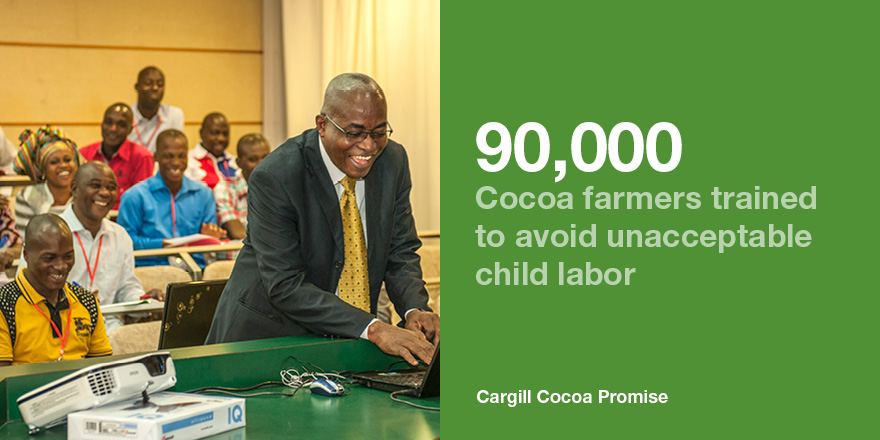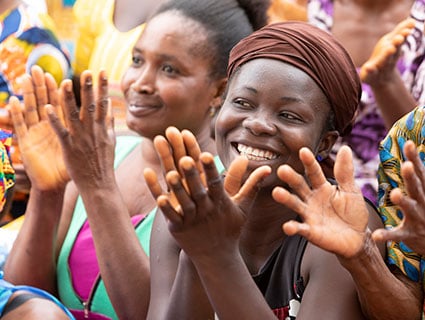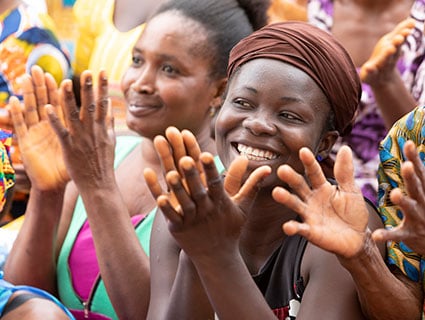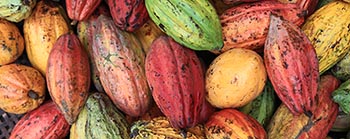Addressing child labor in West Africa
Working towards a transparent cocoa supply chain where no children are subjected to dangerous or forced work on cocoa farms
January 01, 2016
Reducing child labor in West Africa is a critical priority for us, as well as a concern for consumers and our customers. We are working with the industry to eradicate child labor in cocoa farming.
We know that achieving reductions in child labor will take a sustained effort by several parties including industry, the governments of Côte d’Ivoire and Ghana, and other stakeholders.
How we are addressing child labor
We have dedicated teams in place to implement our child labor policies consistently, coordinate our approach across all our activities and programs, and liaise with other stakeholders.
If we are alerted to any child at risk, we work with the local community to inform the management of the farmer cooperative and regional government officials so they can investigate and take any necessary actions.
 We provide awareness training to our teams, children in cocoa growing communities, farmers and their families, and community members, such as teachers. All our employees in Côte d’Ivoire are trained by the International Cocoa Initiative (ICI) to help them understand and identify children who may be at risk.
We provide awareness training to our teams, children in cocoa growing communities, farmers and their families, and community members, such as teachers. All our employees in Côte d’Ivoire are trained by the International Cocoa Initiative (ICI) to help them understand and identify children who may be at risk.
The ICI has also been our partner in developing a training module covering children’s rights and child protection at our Farmer Field Schools. This has trained 90,000 farmers to understand the worst forms of child labor. We also use local Community Development Committees, set up with CARE, to highlight the importance of these issues.
“With the farms and training schools we’ve had for six years, what we’ve learned is not to make the children work. In the training that followed we’ve learned that a child can accompany you to the field to see what you’re doing, but should not carry heavy loads or grab machetes to clean, this is very dangerous!”
A farmer field school participant
Our work with the ICI helps us to implement proven ways of helping farmers identify tasks that may harm children and reduce the dangers for children on farms, such as using machetes, pesticides or carrying heavy loads. At the same time, we have trained children to make sure they understand the risks they face and what they can and cannot do to help on farms. Our feedback shows that 95% of the children trained now understand what is meant by child labor.
“Cargill believes that the best way to increase child protection [is to make sure farmers] have a good understanding of what is the difference between the activities that they can perform with their kids on the farm, and actually make a good distinction between those activities and those that are classified as the worst forms of child labour, and are forbidden by international laws and the laws of Ivory Coast.”
Jean-Marie Delon, Cargill
Cocoa Sustainability Lead - Côte d’Ivoire



